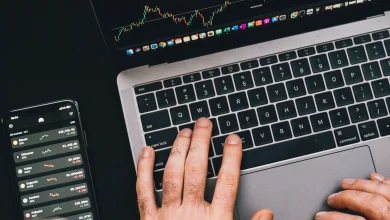Stock Market Futures

Stock Market Futures are contracts that allow investors to buy or sell a specific stock at a predetermined price on a specific date in the future. These contracts are traded on exchanges, just like stocks, and can be used to speculate on the movement of the stock’s price or to hedge against risk.
- The stock market is a place where stocks and other securities are bought and sold.
- The stock market is composed of a number of exchanges where stocks and other securities are traded.
- The stock market is open for trading from 9:30am to 4pm EST on weekdays the stock market is closed on weekends and holidays.
- There are a number of different types of orders that can be placed in the stock market.
- Most orders are executed immediately, but some orders may take longer to execute.
- Orders may be filled at different prices than the price at which they were placed.
- The stock market is regulated by the Securities and Exchange Commission (SEC).
In the stock market, futures are contracts to buy or sell stocks, indexes, or other securities at a set price and date. Futures are traded on exchanges, just like stocks. A buyer of a futures contract agrees to purchase the underlying security at the agreed-upon price on the expiration date. A seller of a futures contract agrees to sell the underlying security at the agreed-upon price on the expiration date.
The value of a futures contract is based on the value of the underlying security. If the price of the underlying security goes up, so does the value of the futures contract. If the price of the underlying security goes down, so does the value of the futures contract.
In the stock market, futures are contracts that allow investors to buy or sell stocks at a particular price on a specific date in the future. Futures are typically used by traders as a way to hedge their investments against potential losses. For example, if an investor believes that the stock market is going to go down in the near future, they can buy a futures contract that will allow them to sell their stocks at a predetermined price. This allows them to protect their investment from potential losses.
Dow Jones Stock Markets Futures
The Dow Jones stock markets futures are indicating that the markets will open lower on Wednesday. The futures are down 0.5% in premarket trading, with the S&P 500 and Nasdaq Composite both down 0.6%. This follows a sell-off on Tuesday, which was sparked by worries about a potential trade war between the United States and China. The Dow Jones Industrial Average fell 2.3% on Tuesday, while the S&P 500 and Nasdaq Composite both lost 2.9%.
This latest sell-off comes after President Donald Trump announced tariffs on $50 billion worth of Chinese imports last week. China responded by announcing tariffs on $50 billion of U.S. goods, including agricultural products, cars, and energy products. Trump then threatened to impose an additional $100 billion worth of tariffs on Chinese imports if Beijing retaliated again.
Dow Jones stock markets futures are indicating a lower open on Wall Street Tuesday, following sharp declines in global equity markets.
The sell-off comes as investors fret about the potential for a slowdown in the world economy, and as inflationary pressures increase. Worries about rising interest rates have also weighed on sentiment.
In Asia, Japan’s Nikkei 225 slumped 2.3 percent, while Hong Kong’s Hang Seng Index fell more than 3 percent. The Shanghai Composite Index dropped 1.7 percent.
In Europe, Britain’s FTSE 100 was down 1.4 percent, Germany’s DAX fell 2.1 percent and France’s CAC 40 declined 2 percent.
On Wall Street, the Dow Jones Industrial Average lost 665 points on Monday, its biggest one-day point drop in history.
Dow Jones stock markets futures indicate that the market will open higher on Wednesday morning. The futures are up 0.5%, indicating a positive opening for the Dow Jones Industrial Average. This follows two days of losses in the markets, with the Dow down more than 350 points on Tuesday.
The cause of the sell-off is still uncertain, though there are concerns about rising interest rates and trade tensions between the United States and China. The Federal Reserve is expected to raise interest rates again in December, and investors are concerned that this could lead to a slowdown in the economy.
There are also concerns about the effect of tariffs on businesses and consumers. The Trump administration has been imposing tariffs on a number of products from China, and this could lead to higher prices for consumers and slower economic growth. We continue to produce content for you. You can search through the Google search engine.




